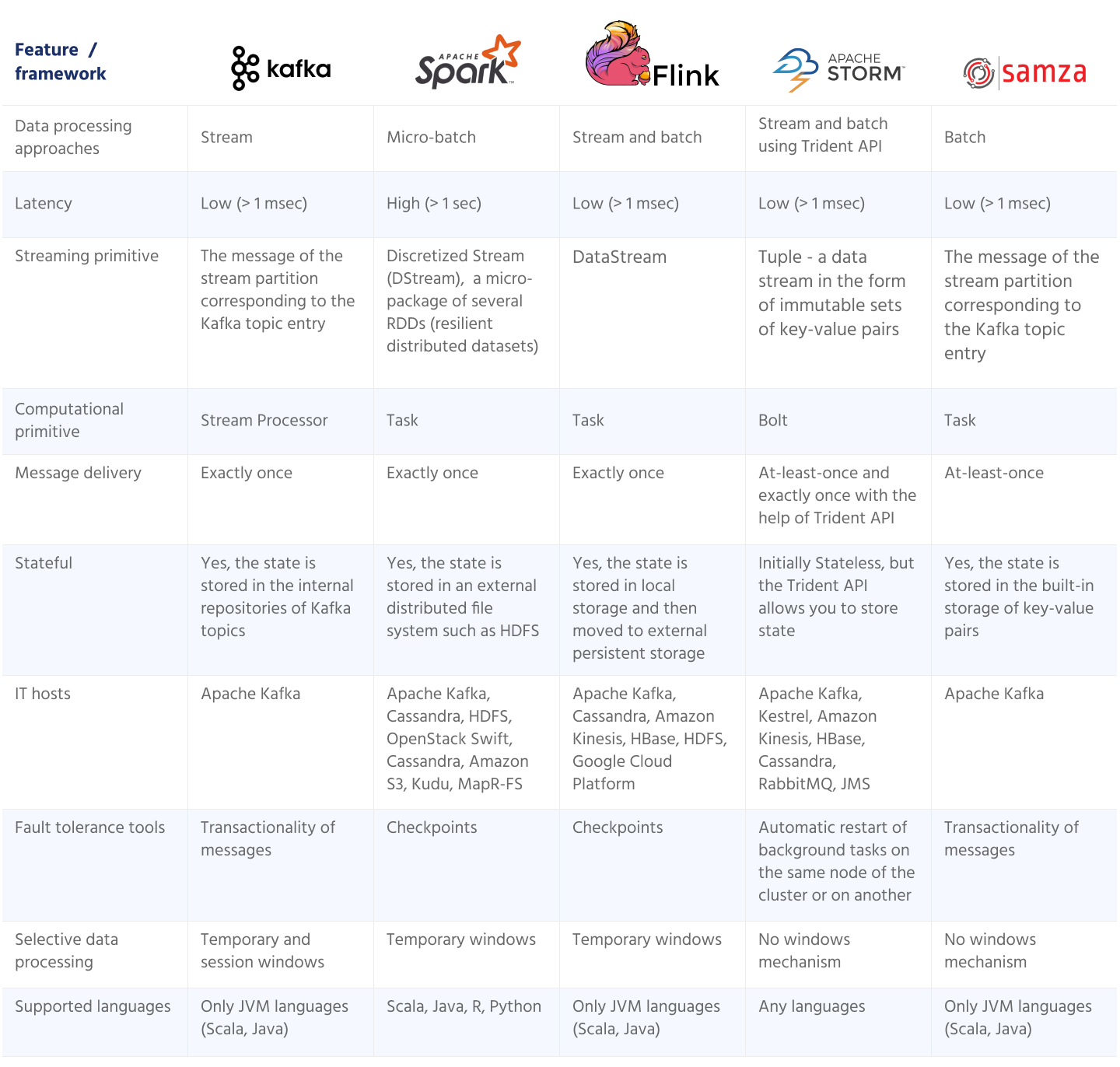Outsourcing Data Management: How the US Enterprises Reduce Costs
Big data is an amount of information characterized by huge volumes, a fast-growing accumulation rate, and various formats. Big data in raw form is quite useless. However, you can optimize business processes and make better decisions if you treat it wisely.
To make good use of big data, you should process and analyze it. This task is rather challenging since it requires specialized knowledge and in-depth expertise in ML (machine learning), data science, and deep analytics.
However, assigning this task to an internal team does not always make sense because of the high costs. Therefore, American and Western European companies often opt for data processing outsourcing and offshore data management approaches. In this article, we will talk about the biggest data processing challenges and advice on how to hire a remote data management team.
Big data usage challenges
In the modern world, almost every business possesses vast amounts of accumulated data that contains essential information about their activities and customers. A wise application of this information provides a significant advantage over competitors and helps deliver better products and services. However, many companies are still unable to leverage big data because their on-prem IT infrastructure is not developed well enough. The challenges are often caused by insufficient storage capacity, poor data exchange processes, and outdated data management tools.
To solve the problem, many companies choose specialized providers with deep expertise in big data analytics. Such a team of data processing specialists can quickly set up a data processing pipeline and get the most out of unstructured information.
At Erbis, we have a well-oiled process to capture, store, process, analyze, and visualize big data. For each client, we build custom data processing solutions based on project requirements and business needs. In addition, the growth of cloud computing allows us to use the most advanced tools on-demand. So, no matter if your business is big or small, we can set up automatic data processing and extract valuable insights using top-notch data management instruments.
Most popular big data frameworks
Working with big data, it is not necessary to write all the processing mechanisms from scratch. Instead, it is much more efficient to use ready-made tools specially designed for the collecting and processing of raw data. By combining them with custom-made solutions, developers can achieve excellent results and provide the client with valuable insights into business strategy.
Next, we will look at the most popular big data frameworks. They are Apache Kafka, Spark, Flink, Storm, and Samza. These tools include the following:
Real-time processing. All five frameworks process data in real-time mode.
Cluster architecture. The frameworks allow developing distributed apps and streaming data stored on different physical and virtual nodes of one or more clusters.
Tasks parallelization. Each tool maintains concurrency of computation by distributing it over a directed graph model of stream handlers called DAG topology (Directed Acyclic Graph).
Fault tolerance. A special failure recovery mechanism allows you to return to an interrupted data processing task and restart it on the same, or a new, cluster node.
Widespread use. All big data processing tools are widely used by world-known companies, such as eBay, Amazon, Facebook, Google, and others.
Despite several similarities, Apache Kafka, Spark, Flink, Storm, and Samza have many differences. We will list the main ones in the table below.

The choice of a big data framework largely depends on the project goals. Experienced developers know the pros and cons of each tool and can choose the right stack for specific tasks. For example, if the project has strict minimum latency requirements, they opt for Apache Kafka, Flink, Storm, or Samza. If the project is written in Python, they choose Spark or Storm.
Why you should outsource data analytics
According to CIO magazine, AI and data analysts are some of the hardest-to-fill IT jobs in 2021. This is because such roles require specific knowledge, vast experience, and a sound awareness of the latest industry trends. In addition, the salary rates for data science specialists do not seem affordable for many businesses. Currently, these positions command up to $130K per year in different US states. So, it is no surprise that data management outsourcing is growing rapidly.
In 2020, the outsourcing market for data analytics reached $3.04 billion. By 2026, it is expected to hit the $9.46 billion mark, an increase of more than 21% per year.
What is the reason for such a boom?
Firstly, businesses that urgently need to harvest critical information from their collected data often rely on offshore teams with lower prices and greater expertise. Secondly, outsourcing data analytics brings many other benefits such as:
Instant access to big data specialists. When you are not limited to a specific region, you can hire from anywhere. There is a big talent pool worldwide. All you need to do is to find the right data processing company.
Faster results. Outsourcing produces results faster because work can begin immediately without having to go through a lengthy recruiting process. Just choose a cooperation model and the outsource team can start promptly.
Focus on core activities. Data science outsourcing improves your efficiency because you no longer need to worry about this part of work. Now you can focus on higher-level processes: customer relations, sales planning, strategic partnership – all the things you cannot delegate to someone else.
Smooth workflow. A reputable outsourcer has certainly worked with many clients from different industries, and there is a good chance they have previously solved tasks similar to yours. So, they know what technologies to use, what mistakes to avoid, and how to deliver the expected result faster.
Easy collaboration. For many countries, providing outsourcing services has become a significant source of income. That is why governments are constantly working on legislation to simplify cooperation with foreign companies as much as possible.
Hiring data scientists and ML engineers
Outsourcing has been around for many years. During this time, it has proven its benefit to both parties: the client and the provider. While the former pays less for a quality product, the latter increases income by attracting foreign capital.
Data processing outsourcing is one of the most popular areas because hiring data analysts and ML engineers is rather problematic. There are not many experts in this area. However, the information value stored in big data is enormous. Given this, clients are constantly trying to find qualified teams that can quickly organize data processing flow and deliver valuable insights.
If you are looking to outsource your data processing needs, don’t hesitate to contact us. Our manager will schedule a free consultation to discuss your project and explain all the details of possible cooperation.
